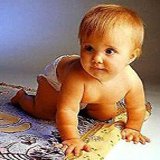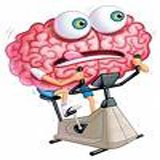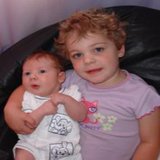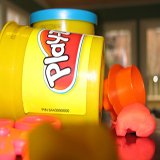Help Your Child with Self-Concept Development
Self-concept development in kids is an evaluation about themselves. This includes what and how they think about themselves.
Here you will find interesting information on children becoming aware of who they are, what they can do, what they think and realizes how they feel.
Self esteem is a major key to success in life. The development of a positive concept of self or healthy self esteem is extremely important to the happiness and success of children and teenagers. This page will share the basics for helping kids and teens to improve their self esteem.
What is Self Concept Development?
The definition of self concept is the accumulation of knowledge about the self, such as beliefs regarding personality traits, physical characteristics, abilities, values, goals, and roles.
Self-concept development already begins in infancy. Children acquire and organize information about themselves enabling them to understand the relation between themselves and their social world. This developmental process is a direct consequence of children's emerging early childhood cognitive development skills and their social relationships regarding family and peer influence.
During early childhood, children's self-concepts are less differentiated and are centered on concrete characteristics, such as physical attributes, possessions, and skills. During middle childhood, the self concept becomes more integrated and differentiated as the child engages in social and emotional development activities and more clearly perceives the self as consisting of internal, psychological characteristics.
During later childhood and adolescence, the self concept becomes more abstract, complex, and hierarchically organized into cognitive mental representations or self-schemas, which direct the processing of self-relevant information.
At What Age Should Self-Concept Develop?
Between the ages of 18-30 months children start to describe themselves in their own language. They can describe themselves just as big or small, boy or girl, or they can describe themselves through evaluation like good and naughty, happy or sad.
The self-description is an important step towards self concept development, because children cant admire themselves if they are not aware of themselves as individuals.
Self-recognition is when a child looks into the mirror and recognizes him-/herself. Researchers say that a childs self-recognition develops between the ages 14-18 months.
Self esteem is how we feel about ourselves, and our behavior clearly reflects those feelings.
A Child with High Self Esteem Will be Able to:
- act independently
- assume responsibility
- take pride in his accomplishments
- tolerate frustration
- attempt new tasks and challenges
- handle positive and negative emotions
- offer assistance to others
A Child with Low Self Esteem Will:
- avoid trying new things
- feel unloved and unwanted
- blame others for his own shortcomings
- feel, or pretend to feel, emotionally indifferent
- be unable to tolerate a normal level of frustration
- put down his own talents and abilities
- be easily influenced
What Can You Do to Promote Self-Concept Development?
Building trust between you and your toddler is very important. Your actions/reactions and attitude towards him/her must always be positive to help your child build a positive self concept.
When children are free to explore a lot, experience a consequent, loving interaction with the caretaker, the changes are so much better for developing a positive self-concept in later stages of their lives.
Let your toddler stand in front of the mirror. You can also stand outside facing each other. Ask questions like: Where is Ewalds nose? using your own childs name and specifying the body parts.
Why Does Some Children Have More Trouble Making Friends Than Others?
Evidence suggests that in some instances early individual differences in attachment and temperament predict later friendship problems or successes.
For example, research has shown that children classified as insecure-avoidant are more likely than securely attached children to show signs of aggression, anger, and hostility in peer influence settings.
Also, insecure-unsure children in such settings are more likely to show signs of social shyness and a low threshold for frustration.
These patterns of anti social behavior are predictive of peer rejection and lack of friendship. Similarly, research in infant and childhood temperament has revealed a predictive relation between friendship success and both overall emotionality and the ability of an infant or child to self-regulate emotional expression.
Infants and children who are the most temperamentally emotional and the least capable of regulating their expression of emotion are on average less successful in developing and maintaining friendships.
Children also need to develop autonomy. As we all know toddlers love saying the word NO. This might be a great frustration for you but this little word plays an important role in developing a sense of self.
Find It!
Can't remember where you read something specific? Just type in your search term in the box below and your specific topic will be returned to you instantly.









